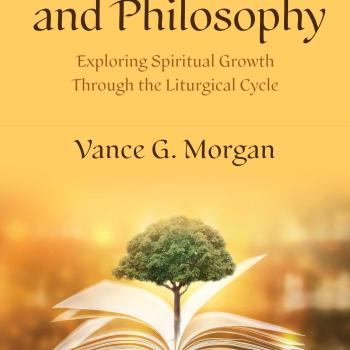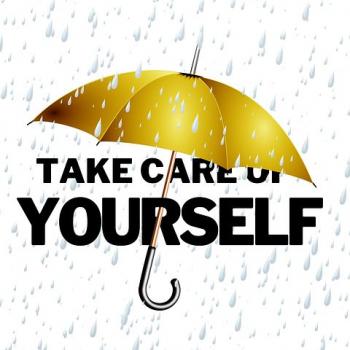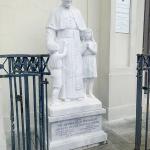I do not know how to teach philosophy without becoming a disturber of the peace. Baruch Spinoza
 My teaching colleagues and I were happy to learn during the spring semester last year that Art Spiegelman’s graphic novel Maus had been banned by Tennessee’s McMinn County school board from its curriculum. Serialized from 1980-91, Maus won the 1992 Pulitzer Prize for literature. When choosing the texts for our team-taught course, an interdisciplinary exploration of the twentieth century through literature, history, philosophy, theology, and art, we chose Maus as our primary text our study of the Holocaust. We are using it for a second time during the current spring semester as well.
My teaching colleagues and I were happy to learn during the spring semester last year that Art Spiegelman’s graphic novel Maus had been banned by Tennessee’s McMinn County school board from its curriculum. Serialized from 1980-91, Maus won the 1992 Pulitzer Prize for literature. When choosing the texts for our team-taught course, an interdisciplinary exploration of the twentieth century through literature, history, philosophy, theology, and art, we chose Maus as our primary text our study of the Holocaust. We are using it for a second time during the current spring semester as well.
Spiegelman was understandably confused by the news that his book had been banned, observing that many young people over the years have learned much of value from his book. Calling the school board’s decision “Orwellian,” Spiegelman also noted that “Tennessee is obviously demented. There is something very, very haywire going on there.”
My teammates and I are also proud that at least one other text on our syllabus—Zora Neale Hurston’s 1937 novel Their Eyes Were Watching God—is on a number of banned book lists across the country. As an aside, I would add that if book banners/burners were familiar with philosophy, the majority of philosophy texts (Nietzsche, Sartre, Camus, Murdoch, etc.) on the syllabus should be on their “bad book” lists as well. My colleagues and I have already talked informally about teaching this course some year using nothing but texts that are on banned book lists–we might not have to change much from what we already have on the syllabus now. In many ways, putting various texts on banned book lists tends to produce the opposite effect intended by the banners. As we all know, there’s nothing that makes something more attractive than to be told that you can’ have it. Sales of Maus have spiked considerably since the news of its banning in Tennessee went viral.
As an educator, I’ve been thinking about and engaging with these and similar issues for more than three decades. I recall a conversation I had as a young professor with a much more experienced colleague who expressed concern at my including works by atheists such as Daniel Dennett and Richard Rorty in my Philosophy of Religion course at our Catholic college. “Some texts are just out of bounds,” he insisted. When I disagreed, he lost it. “My God, would you teach Mein Kampf in a class?” he sputtered. “Yes,” I replied, “if it had pedagogical value.” It’s probably just as well that my now-retired colleague doesn’t know that I and a teaching partner use selections from Mein Kampf in our colloquium “Grace, Truth, and Freedom in the Nazi Era” (a course we have taught at least a half-dozen times). P.S: We are also reading selections from Mein Kampf in three weeks in the team-taught course I am teaching this semester.
I’m reminded of a lead article in the The Atlantic magazine several years ago called “The Coddling of the American Mind.”
Lukianoff and Haidt: The Coddling of the American Mind
Co-authored by Greg Lukianoff and Jonathan Haidt, the teaser blurb for the article in the Table of Contents says, “How a new strain of political correctness on campus is damaging higher education—and may be threatening students’ mental health.” Lukianoff and Haidt draw our attention to what might be called “political correctness with a twist”:
The current movement is largely about emotional well-being. . . . It presumes an extraordinary fragility of the collegiate psyche, and therefore elevates the goal of protecting students from psychological harm. The ultimate aim, it seems, is to turn campuses into “safe spaces” where young adults are shielded from words and ideas that make some uncomfortable. And more than the last, this movement seeks to punish anyone who interferes with that aim, even accidentally.
The authors note that two important terms have risen quickly from obscurity into common campus parlance over the past few years: Microaggression and Trigger warnings. Microaggressions “are small actions or word choices that seem on their face to have no malicious intent but that are thought of as a kind of violence nonetheless.” Examples provided include asking an Asian American or Latino American “Where were you born?” because this implies that she or he is not a real American. Trigger warnings are “alerts that professors are expected to issue if something in a course might cause a strong emotional response”; examples of texts deemed as needing trigger warnings on various campuses include Virginia Woolf’s Mrs. Dalloway (suicidal inclinations) and Ovid’s Metamorphoses (sexual assault). As I described last Sunday on this blog, Mrs. Dalloway is also on our syllabus this semester.
What Can We Do Now That There Is No God?
One of the authors’ primary concerns, repeated frequently throughout the article, is that such attention to words and actions that might possibly somewhere, somehow offend someone will leave students unprepared to live and work in a world that doesn’t give a crap about what makes them feel uncomfortable.
What are we doing to our students if we encourage them to develop extra-thin skin in the years just before they leave the cocoon of adult protection and enter the workforce? Would they not be better prepared to flourish if we taught them to question their own emotional reactions, and to give people the benefit of a doubt?
I am pleased to report that serious conversations about the negative power of language on students in various groups defined racially, economically, by gender or by sexual preference have been ongoing on my campus for some time now.
The tsunami described by Lukianoff and Haidt as drowning campuses nationwide has escaped my notice where I teach—at least in my classrooms. Perhaps this is because I have included this general “trigger warning” in every syllabus for every one of my courses for at least the past fifteen years:
In this course we will be considering some of the most important questions a human being can ask. Perhaps the most important feature of our considerations is learning to ask these questions clearly and precisely. Only then can possible answers be considered fairly. Although I have definite positions on the questions we will be addressing, my role as professor is not to tell you what to think. My role is rather to get you to think. Expect your assumptions to be challenged and comfortable ways of thinking to be disturbed. As the great 17th century philosopher Spinoza once said, I do not know how to teach philosophy without becoming a disturber of the peace.
During an oral final exam a couple of semesters ago a student told me that “This class really messed me up—but in a good way!” Mission accomplished.
The new spring semester is just in its fourth week. If asked, this is what I would tell any student about the value of having one’s comfort zone stretched to its limit:
Free speech dictates that everyone has the right to their opinion, but not all opinions are equal. One of the purposes of a liberal education is to help you become skillful at using the tools of lifetime learning; some of these tools, used properly, will help you learn how to distinguish a good argument from bullshit—even when it is your own argument that turns out to be bullshit. I often say that a liberally educated person has to earn the right to have an opinion. The process of earning that right begins with realizing that your opinion is not special just because it is yours; without challenge and analysis your opinion means nothing with regard to whether it is true (or whether it is even a defensible position).
In the life of learning, comfort is vastly overrated. Expect to encounter people, ideas, situations and expectations that are both unfamiliar and well outside your comfort zone. You should be looking for these rather than trying to avoid them. If you manage to make it through your undergraduate college career without changing any opinion, belief, perspective or attitude, then your tuition dollars have been wasted.
The world of adulthood can be a tough, nasty place. The world out there is full of people, ideas, things, and events that couldn’t care less if they lie within your current comfort zone. As my wife would say, the world is what it is. Your years in college are not so much about landing a well-paying job after you graduate as they are about the construction of a powerful and flexible moral and psychological framework of belief and commitment, from within which you will engage with what’s “out there” on a daily basis.
It is not the world’s responsibility to provide you with comfort and security. It is your task to create and maintain a moral and psychological home for yourself in that world using all the resources available to you, resources to sustain you on a life-long journey. By the way, you’ll be making significant renovations and additions to this home your whole life. Your professors are here to assist you in the construction of that home—good luck!
A liberal education, especially, inspires students to value struggle. By grappling with authors and ideas that demand the greatest level of intellectual intensity—and this is especially true in subjects that are difficult and uncongenial—students learn that they stretch themselves more through struggle, whether or not they win the match. Christopher Nelson

















